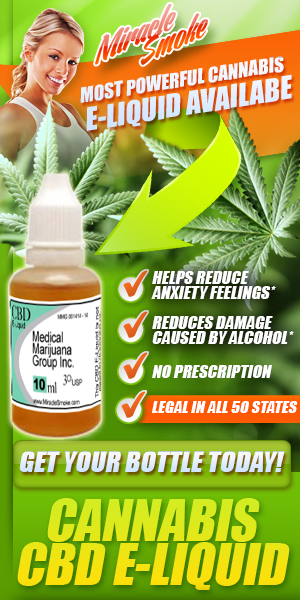If you live in the San Diego area and need help for an addictive or psychiatric illness, Lasting Recovery is your most-trusted resource for help and support.
Dealing with one serious illness – Substance Use Disorder – is hard enough. But addiction is frequently accompanied by one or more mental disorders – anxiety, bipolar disorder, depression, PTSD, ADHD or a personality disorder, etc. And when SUD and another psychiatric disorder co-occur, it is referred to as a “dual diagnosis”.
If not treated properly, co-occurring conditions can complicate successful recovery from any of them. Mental illness and addiction feed off one another. Each plays a major role in the development and worsening of the other. This is why making the correct treatment choice is of such crucial importance.
In San Diego, Lasting Recovery IS that choice.
Co-occurring Addiction and Mental Illness: The Statistics
Unfortunately, precise numbers on mental illness and addiction are difficult to come by. Too many people stigmatize those who struggle with these conditions. But we can extrapolate by using accepted statistics.
- About 1 out of every 10 Americans age 12 or older become addicted to drugs or alcohol at some point. San Diego County has a population of just over 3.3 million people. Approximately 80% are 18 or older. Doing the math, there are over 330,000 people in San Diego County who either have or will eventually develop a SUD.
- 72% of drug addicts and 45% of alcoholics struggle with one or more comorbid mental conditions.
- Unfortunately, more than half of all dual diagnosis patients never receive specialized treatment for SUD recovery.
- In fact, just 40% are treated for either illness.
- Only about 2% receive proper specialized care for BOTH.
This all means that there are potentially hundreds of thousands of San Diego County residents who need—but are not receiving—treatment for their co-occurring disorders.
What does this mean to YOU?
It means that you are not alone.
It also means that help IS available, through one of Lasting Recovery’s outpatient treatment programs.
What Kind of Mental Illnesses Co-occur with Addiction?
It’s a vicious cycle: You are in emotional pain, so you drink or use drugs to feel better. But then your excessive substance abuse causes you even more problems and worsens your pain. So you drink more and take more drugs…
What started as one serious illness has now become two, and it happens more than you might think.
Comorbidity rates—
- Attention Deficit Hyperactivity Disorder (ADHD): 25%
- Anxiety: 45%
- Bipolar Disorder: 56%
- Borderline Personality Disorder: 47%
- Depression: 67%
- Disordered Eating: 50%
- Narcissistic Personality Disorder: 64%
- Obsessive-Compulsive Disorder: 25%
- Post-Traumatic Stress Disorder (PTSD): 66%
- Schizophrenia: 65%
In fact, you can see that if you are struggling with some of these illnesses, it’s not just possible that you have a SUD, it’s PROBABLE. And if both conditions aren’t properly identified and treated, then you will work and work and wonder why you are not getting any better.
This is why incoming clients at Lasting Recovery always receive a thorough assessment of both their substance abuse and psychological needs. And if necessary, they are placed in a full day outpatient dual diagnosis treatment program.
What is “Specialized” Treatment for Co-Occurring Disorders?
When discussing the treatment options for co-occurring SUD and mental illness, it first must be understood that the majority of patients never receive ANY care whatsoever. This is due to a number of barriers – stigma, shame, affordability, availability, and privacy.
The Substance Abuse and Mental Health Services Administration has determined that the best way to treat simultaneously-manifesting addiction and psychiatric illness is with integrated treatment.
This option is when both illnesses are considered to be the primary condition so that both are treated at the same time. Each service provider works together at the Lasting Recovery facility using a cooperative and shared treatment philosophy.
And here is the best part—the dual diagnosis can be treated on an outpatient basis. This means that you can still live at home with your family, work, go to school, and fulfill other personal obligations. If you need more immersive treatment, our full day outpatient, Partial Hospitalization Program may be more appropriate.
What are Some of the Services Offered by Outpatient Dual Diagnosis Treatment?
Integrated treatment for co-occurring disorders is by necessity comprehensive. Because addiction and mental illness involve so many other factors, Lasting Recovery utilizes many treatment options.
With a dual diagnosis, there are some treatments that help both addiction and mental illness:
- Psychological assessment (to determine potential need and obtain an accurate diagnosis)
- Individual psychological counseling (for issues unique to you)
- Group therapy (for issues common to most addiction and patients with co-occurring disorders)
- Couples and family education (for problems such as codependency or enabling behavior)
- Informal fellowship support meetings
- Medication Assistance (to stabilize moods, reduce cravings, and alleviate withdrawal symptoms)
- Education (to better understand how the two disorders impact other)
- Identifying and avoiding triggers (staying away from the people, places, things, thoughts, and emotions associated with substance abuse or mental health episodes)
- Coping skills (dealing with problems in a healthy manner)
- Stress reduction techniques (yoga, meditation, controlled breathing, journaling)
- Overcoming trauma (processing distressing memories)
- Nutritional guidance (repairing harm, reducing cravings)
- Exercise routine (healthy activity)
- Relapse avoidance (prevention and response)
But Lasting Recovery goes further than that. As part of the CARF accreditation to treat dual diagnosis, Lasting Recovery also offers services in the full day program that specifically address mental health problems.
- Cognitive Behavioral Therapy (CBT)—learning to change the emotions, thoughts, and behaviors that are causing problems in your life.
- Dialectical Behavioral Therapy (DBT)—learning how to better manage your emotions so you can express yourself in a healthy and positive manner.
- Mindfulness meditation—learning how to focus on what is happening in your life. This allows you to thoughtfully respond to problems rather than just impulsively react to them.
Obviously, because so many more services are offered, an Outpatient Program for recovery from co-occurring disorders has the benefit of providing more treatment hours per week than typical counseling. For example, Lasting Recovery’s integrated Partial Hospitalization Program offers 30 hours of treatment per week, split right down the middle-15 hours for substance abuse and 15 hours for mental health.
And, because proper dual diagnosis care has so many strategies available, it is far easier to create a treatment plan that has been tailored to YOUR needs.
Lasting Recovery’s IOP and PHP daytime options address both the addiction AND the mental illness at the same time, thereby maximizing the chances of successful recovery from both. So if you are suffering and want to take the first steps toward total wellness, contact Lasting Recovery TODAY.









